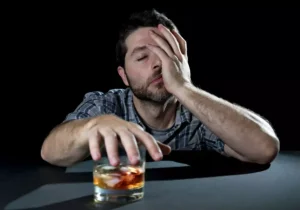
The opioid crisis is so bad that the U.S. government declared a public health emergency. Speak with your doctor if you have become physically dependent on a medication or other substance. Other common substances that cause dependence are https://ecosoberhouse.com/ nicotine and pain relievers, particularly narcotics. Stopping suddenly will likely cause symptoms, and they can be serious. So unless it is urgent, gradually cutting down on the amount and how often you use it should make it easier.
- If you develop a tolerance to a substance, it becomes less effective for you.
- Ifyou are facing a medical emergency or considering suicide or self harm, please call 911immediately.
- They may start voluntarily2, like winding down for bed with a glass of wine.
- That’s what most drugs are meant and designed to do—make people feel good and enforce repetition.
- It’s increasingly common for someone to be diagnosed with a condition such as ADHD or autism as an adult.
- But because the body has adapted to its presence, a person may experience negative effects if they lower the dosage or stop taking it altogether.
What Is a Habit?
- You may assume that certain substances are more addictive than others, and that is partially true, Mr. Kump says.
- The purposeful use of the term “Addictive Disorders” in the naming of this chapter was primarily due to the addition of “gambling disorder” to the DSM, a non-substance-related disorder.
- Dependence is characterized by tolerance or withdrawal symptoms, and can be a consequence of many drugs, such as pain medications, stimulants, and antidepressants.
- People who are physically dependent require increasing amounts of the substance to achieve the same effect and experience discomfort when trying to quit due to withdrawal symptoms.
Not only are millions of Americans struggling with substance use disorder, but in 2014 alone, there were more than 45,000 overdose deaths, over half of which involved prescription opioids and heroin. Alcohol abuse is also a continuing problem in the country, with over 65 million people binge drinking in the past month. Unlike tolerance, which focuses on how much of the substance you need to feel its effect, physical dependence happens when your body starts to rely on the drug. If you were to suddenly stop using it, you would likely experience some harsh symptoms.
Recognizing The Difference
That’s what most drugs are meant and designed to do—make people feel good and enforce repetition. They send a rush of dopamine through your brain’s reward system6, telling you to do it again because it has a positive result. As your brain adapts to the unnatural effects of the substance and overflow of dopamine, it learns to stop making its own.

Images of Brain Development in Healthy Children and Teens (Ages 5-

These triggers set off biochemical changes in a person’s brain that strongly influence addictive behavior. With alcohol addiction, or severe alcohol use disorder, a person finds it difficult to stop drinking much of the time, not only in certain situations. Mental dependence is when a person relies on a substance or behavior to cope with emotional challenges. For example, a person may drink alcohol when they feel stressed but otherwise feel no compulsion to drink. Currently, the only behavioral addiction included in the Diagnostic and Statistical Manual of Mental Disorders, 5th edition, text revision (DSM-5-TR) main list is gambling disorder. But because the body has adapted to its presence, a person may experience negative effects if they lower the dosage or stop taking it altogether.
Tolerance, Physical Dependence, and Addiction Explained

It’s also important to note that benzodiazepine withdrawal can be deadly, and cessation should always be handled in the care of a professional. For example, individuals who are addicted to prescription drugs will take more than the prescribed amount and for longer than addiction vs dependence its intended use. They will tend to be secretive about their use and will need the drug to function normally. If you are struggling with your alcohol or drug use, it can be helpful to explore these three definitions to determine whether there might be a problem.
Knowing as much as possible about addiction and dependence can also be a valuable tool in achieving recovery. It is also important to realize that while a dependence may be present without addiction, substance dependencies frequently lead to addiction. If you think you have a dependence or addiction, contact a treatment provider today for help.
- It’s like trying to steer a massive ship – changes in direction take time and effort.
- Like inpatient treatment, clinical staff are on hand to assist with detox, medication management, and withdrawal symptoms.
- The only way to overcome this is by accepting you have a problem and reaching out for help.
- After a careful vote, “addiction” was changed to “substance dependence” and it remained that way until the DSM entered its 5th edition in 2013.
- So why do some organizations scrap the word “addiction” from their vocabulary?
It becomes hard to feel pleasure any other way, causing cravings and urges to use the substance. Both habits and addiction come from neurotransmitters traveling through certain pathways in the brain. The positive results of habits (like saving money by shutting off your lights) reinforces them, much like the positive feelings from substances can reinforce their use.

What’s the difference between physical and psychological addiction?
Let’s start by dipping our toes into the murky waters of definitions. Dependence, in its simplest form, is like that clingy friend who just can’t seem to let go. It’s a physical reliance on a substance, where the body has adapted to its presence and throws a tantrum (hello, withdrawal symptoms!) when deprived of it. Addiction, on the other hand, is the unruly teenager of the family – rebellious, disruptive, and often wreaking havoc on one’s life despite the negative consequences. If someone with a drug dependence detoxes, especially by slowly decreasing the amount of the medication they take over a period of time, they may suffer withdrawal symptoms, but can end that physical dependence. When people use the term “dependence,” they are usually referring to a physical dependence on a substance.

